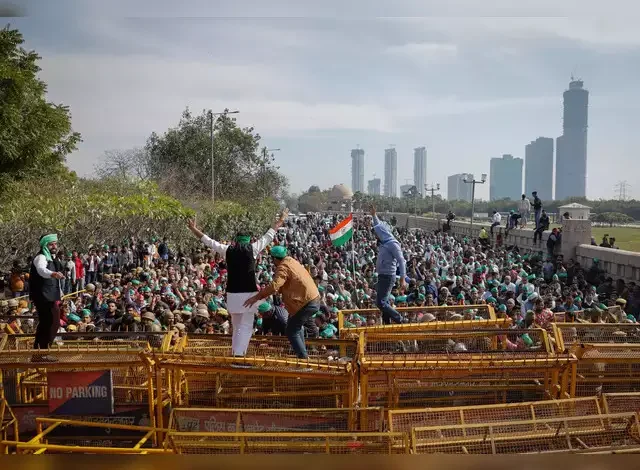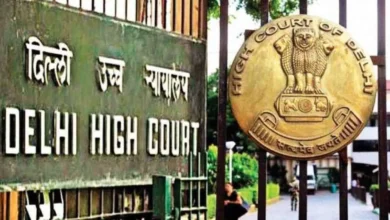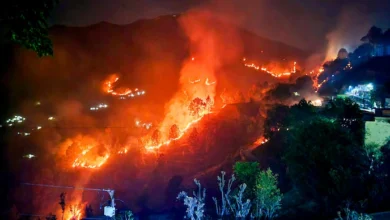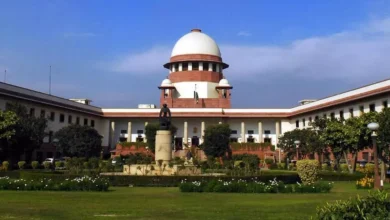
A day before the farmers’ ‘Dilli Chalo’ march to the national capital, similar to the 2020-21 agitation, the Delhi Police invoked prohibitory orders under Section 144 of the Criminal Procedure Code (CrPC) throughout the city, effective immediately. Delhi Police Chief Sanjay Arora issued the order, stating it would be enforced for 30 days unless withdrawn earlier.
“The Samyukta Kisan Morcha, the Kisan Mazdoor Morcha, and several other farmers unions and associations have announced a ‘Dilli Chalo’ march on February 13, 2024, to protest outside the Parliament House, pressing their demands. There exists a well-founded apprehension/possibility that the participants of the march may try to enter the territory of Delhi from various entry points. There is an imminent risk of widespread tension, public nuisance, public annoyance, and social unrest and the potential for violence on account of the participants entering the territory of Delhi,” stated the order.
Intelligence agencies say there can be massive law and order problems and they are worried that some troublemakers or protester groups might make things worse for their own gain. “No tractor trolleys, trucks, or any other vehicles transporting individuals or materials, especially those carrying implements such as sticks/lathis/dandas, swords, spears, bludgeons, firearms, or any other thing capable of being used as weapons or tools of violence, shall be permitted entry into the territory of Delhi.”
The order has banned assembly of five or more persons, processions, and rallies anywhere in the city. “There shall be an absolute prohibition on the organization, convening, or participation in any processions, demonstrations, rallies, or march on foot, where for political, social, or any other purpose, within the geographical limits of Delhi/New Delhi.”
Increased border security measures were announced, with increased scrutiny on vehicular traffic originating from neighbouring states like Haryana and Uttar Pradesh. Vehicles found carrying items potentially used for disruptive purposes will be denied entry into Delhi.
“All vehicular traffic originating from the borders/pickets of adjoining districts of neighbouring states i.e Haryana and Uttar Pradesh and heading towards Delhi shall be subjected to rigorous and thorough inspection,” said Delhi Police.
“Any vehicles found to be transporting lathis, rods, banners, or similar objects likely to be used for disruptive purposes shall be denied entry into Delhi,” Arora said in his order.
Provocative actions or utterances aimed at inciting public disorder or unrest are strictly prohibited. Violations will be deemed punishable offences under section 188 of the Indian Penal Code, leading to criminal prosecution.
“Any person contravening the provisions of this order shall be deemed to have committed an offence punishable under section 188 of the Indian Penal Code (Act No 45 of 1860) and shall be liable for criminal prosecution in accordance with law,” the order said.
Certain exemptions have been granted, allowing for government-organized events, religious gatherings, weddings, or funerals.
Meanwhile, administrative authorities in Punjab and Haryana have also taken similar precautions, sealing borders and imposing Section 144 in various districts. Farmers’ unions from these states, united under the Sanyukt Kisan Morcha and Kisan Mazdoor Morcha banners, are mobilizing for the ‘Dilli Chalo’ march, demanding better minimum support prices (MSP).
With anticipation growing, all the eyes are on the planned meeting between three Union ministers and farmers’ unions in Chandigarh. The result of this meeting is likely to affect what both parties do next.
You might also be interested in – Delhi on high alert as massive farmer protest to be held on 14 Feb, state borders sealed



